An NGO, Women’s Rights and Health Project (WRAHP) has called on the Nigerian judiciary to be more responsive in the dispensation of justice on cases related to S3xual and Gender-based Violence (SGBV).
Programme manager, WRAHP, Francis Umoh, made the call on Friday in Lagos during a one-day sensitisation programme for journalists on SGBV reporting.
Join our WhatsApp ChannelUmoh said the judicial process of prosecuting perpetrators in Nigeria is very tedious and expensive and most times makes it difficult to get justice for SGBV survivors.
“We want the judiciary to be more responsive. The judicial process of prosecuting perpetrators is very tedious, very expensive. So, we want the judiciary to see how they can speed up cases, especially cases of rape so that perpetrators will not go unpunished,” Umoh stated.
The WRAHP programme manager called on all stakeholders including agencies of government, traditional leaders, community leaders, parents and guardians to come together and recognise the need to tackle issues about sexual and gender-based violence happening in communities.
Umoh commended the Lagos State Domestic and Sexual Violence Agency for its work in dealing with SGBV cases.
Speaking to journalists during the event held at Egbe-Idimu Community Town hall in Alimosho LGA of Lagos State, Mr Umoh noted that a series of advocacy campaigns about the dangers of SGBVs in society have been carried out and even successful prosecution of perpetrators, but it still persists and women and young girls are mostly affected.
Apart from sexual violence, he said other forms of violence against women also include, economic deprivation, neglect, abandonment, battery, human trafficking, and femicide among others.
He said these have serious short- and long-term physical, economic and psychological consequences on women and girls, preventing their full and equal participation in society.
At a press conference in November last year to kickstart the 16 days of activism against gender-based violence (GBV), Nigeria’s Minister of Women Affairs, UjuKennedy-Ohanenye said the country recorded over 27,000 cases in five states and the Federal Capital Territory (FCT) Abuja between 2020 and 2023.
Speaking on the topic, “The Role of Media in Reporting SGBV cases,” Wemimo Adewuni, manager, Support Association for Fibroids Awareness, (SAFA), underscored the pivotal role of media practitioners in tackling SGBV cases in every society.
She said that given the fact that mass media role in the country has been enshrined in section 22 of the 1999 constitution (Obligation of Mass Media), various platforms can help in creating awareness by highlighting the ramifications of SGBV and consequences, and also fostering empathy for survivors.
READ ALSO: #IWD2023: 7 Leading Organisations Helping Nigerian Women And Girls
She added that the role of media can also take the form of advocacy centred on the need for appropriate government authorities to create policies that address SGBV issues in the country.
“We can do it by accurately depicting the realities of SGBV and its consequences and fostering empathy for survivors through our narratives.
“The media can also advocate policy changes in relation to SGBV,” Mrs Adewuni stated.
She also hinted at adopting investigating reporting to uncover systemic failures that encourage SGBV cases among others.
‘Our stories can highlight gaps in legislations about SGBVs,” she added.
The women’s rights activist challenged journalists to do follow-up stories on important issues and not allow them to die off while certain ugly acts that negatively affect the rights of people continue to linger.
She also advised journalists to fact-check things and counter falsehoods, especially those disseminated by unprofessional bloggers and other rumour mongers looking for clickbait.
She also highlighted ethical issues that journalists must observe in reporting cases of SGBV in away that does not put the survivor at risk, stigmatise, or draw public disaffection against them.
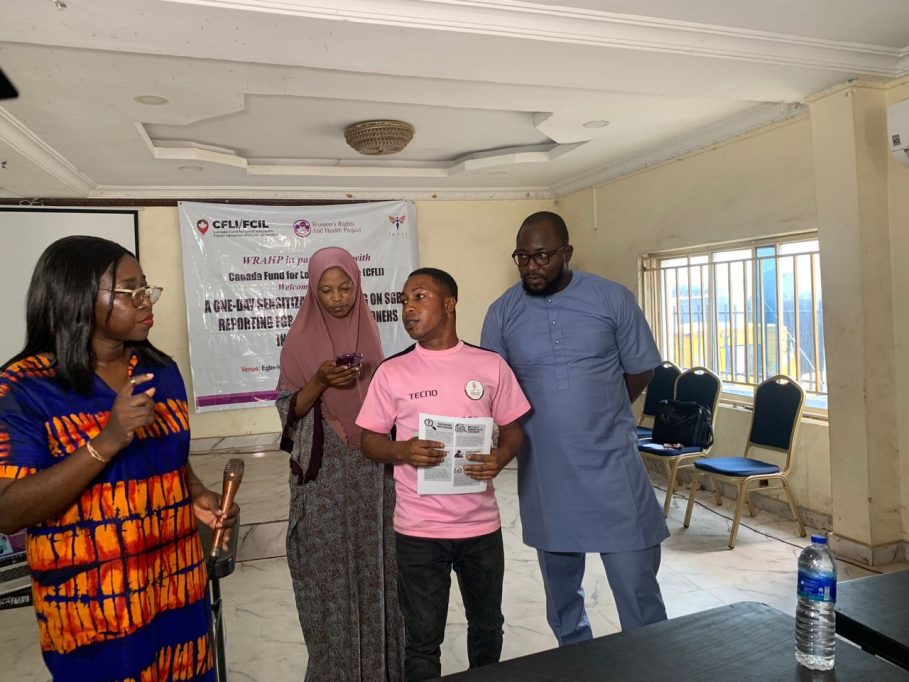
WRAHP just concluded a six months programme on SGBV sensitisation in partnership with Canada Fund for Local Initiative (CFLI).
According to Umoh, WRAHP succeeded in training 100 advocates- young, adults, women, and men – from different communities to caryout grassroots sensitisation about SGBVs. He also stated that they engaged with traditional rulers and police to support work of stamping out SGBV practices across the country.
“We were able to train 100 community advocates – young persons, adults, women, men, boys and girls – from different community structures and also the police, community representatives. We were able to also engage and dialogue with traditional rulers. We were able to conduct community sensitisation reaching 1500 members of the community through multiple channels.
“We also provided psychosocial support services for survivors of sexual and gender-based violence – about 100 of them, some counseling, some rescue, and even arresting of perpetrators. We were also able to produce educational materials, fact sheets on SGBV, a simplified edition of the Lagos State Domestic Violence Law.”
Umoh extended appreciation to the Canada Fund for Local Initiative (CFLI) for the partnership that enabled WRAHP to execute the project.
Victor Ezeja is a passionate journalist with seven years of experience writing on economy, politics and energy. He holds a Master's degree in Mass Communication.

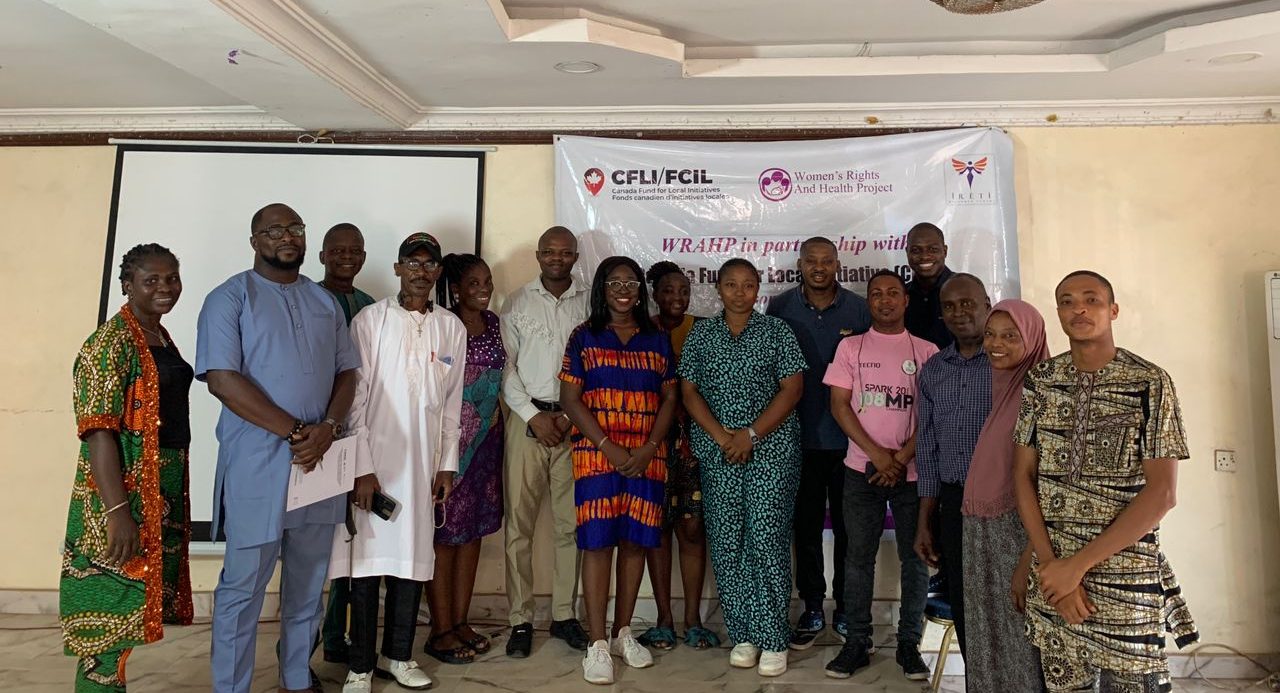



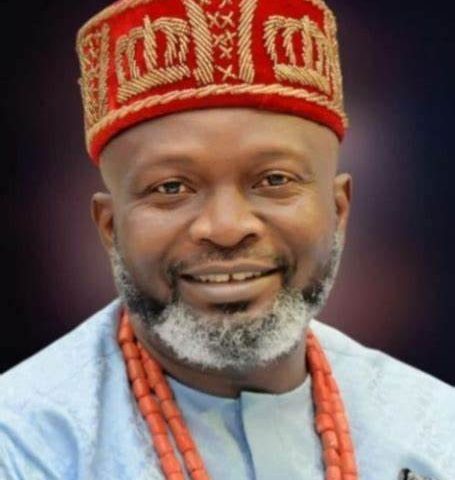










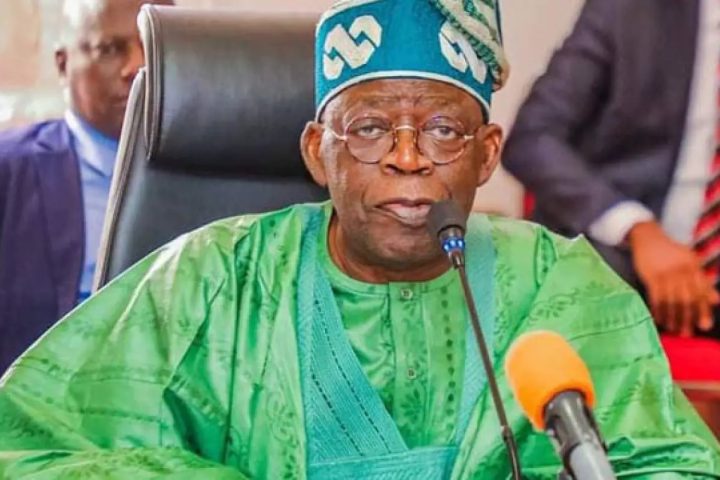
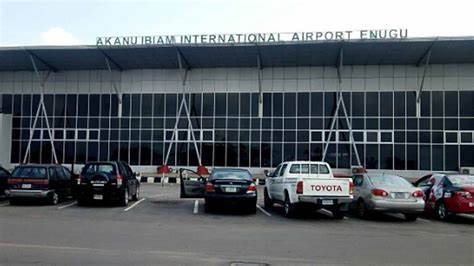
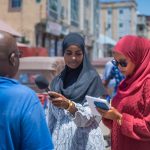
Follow Us